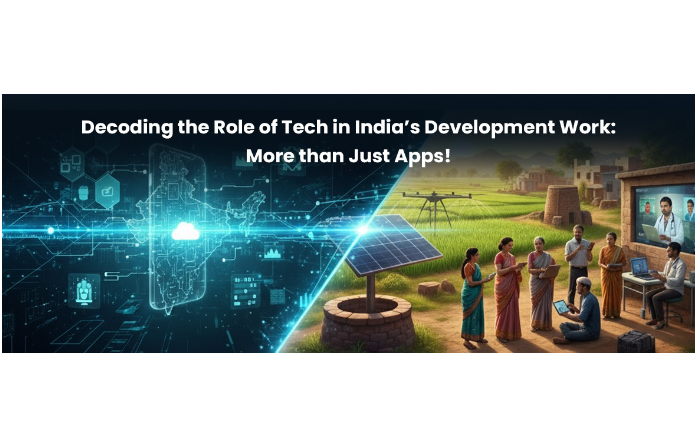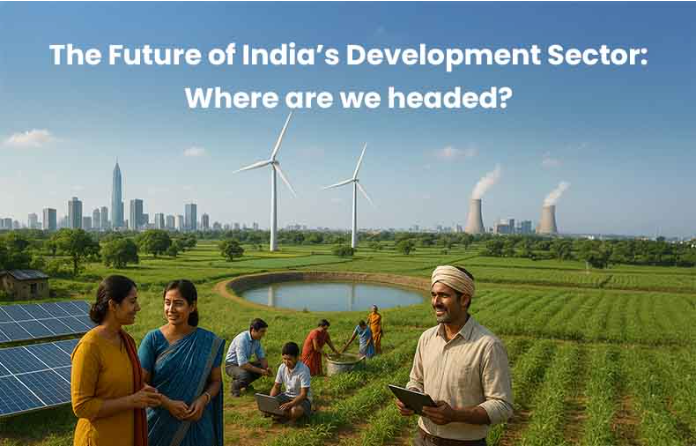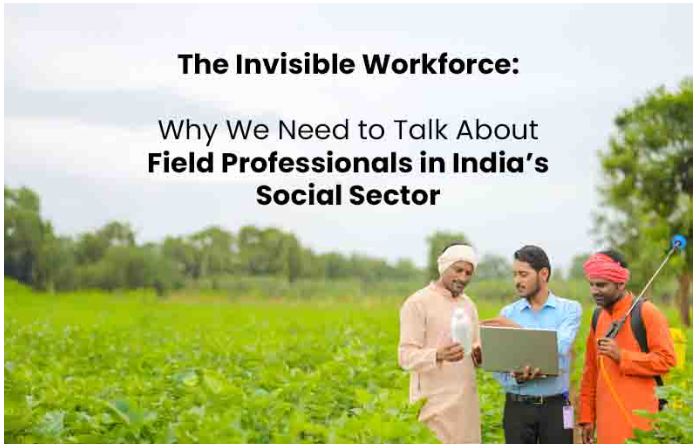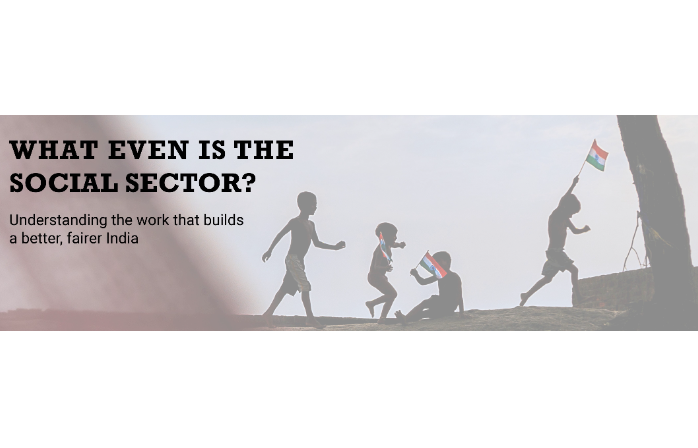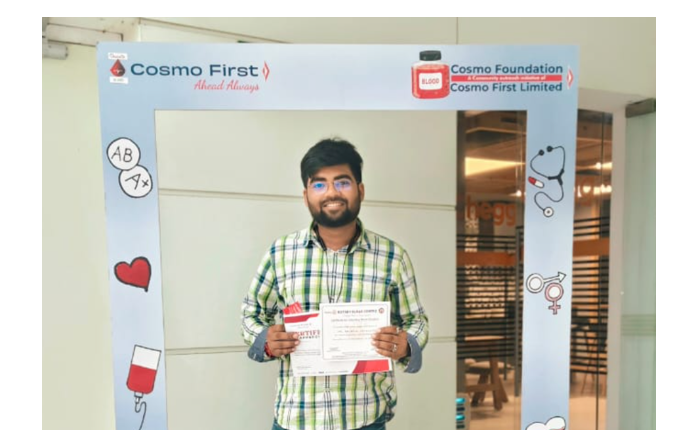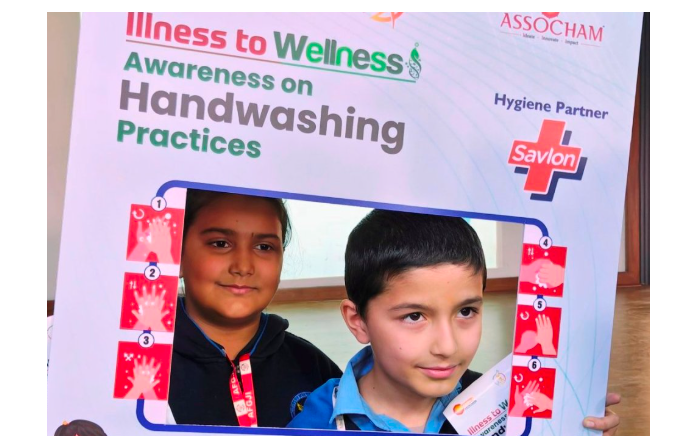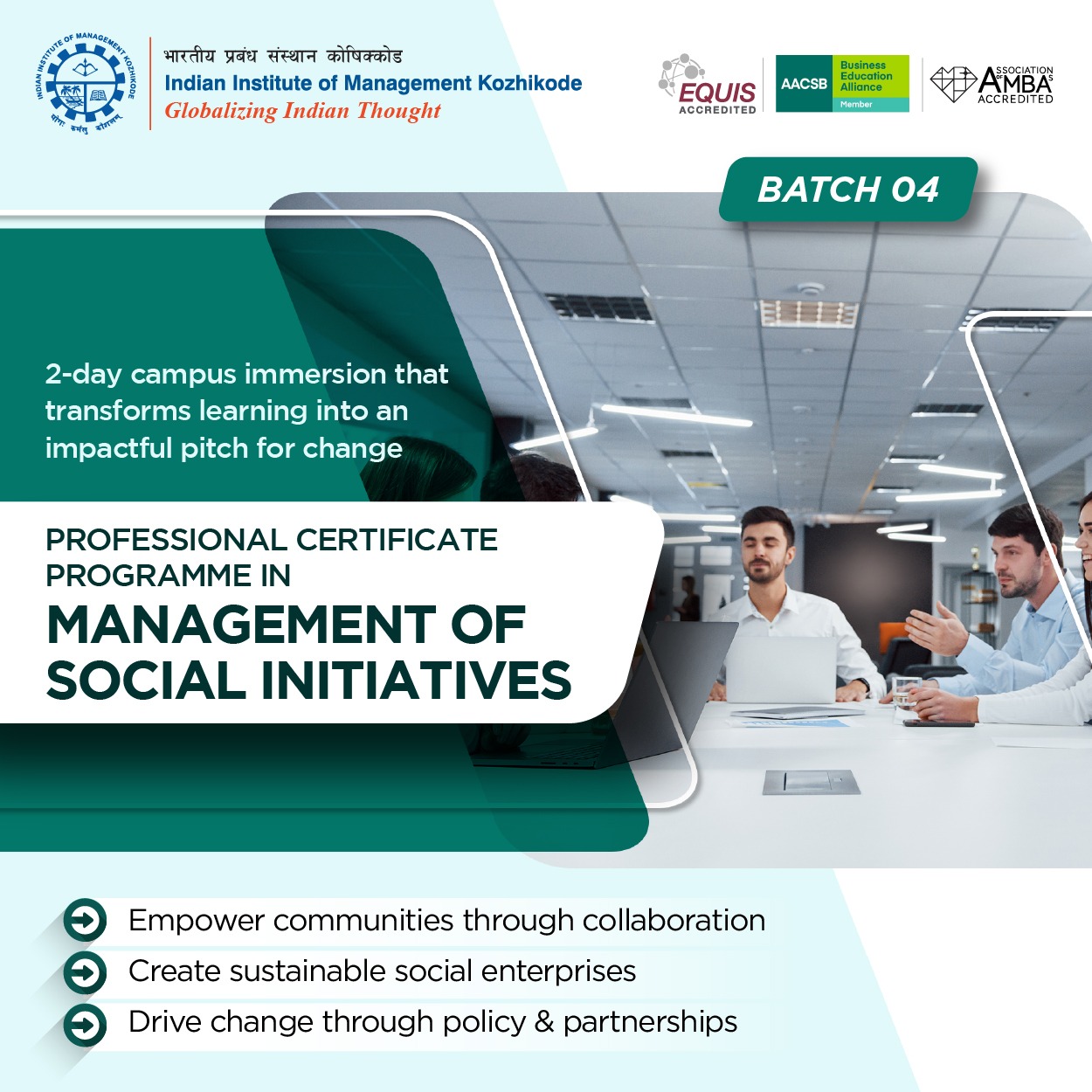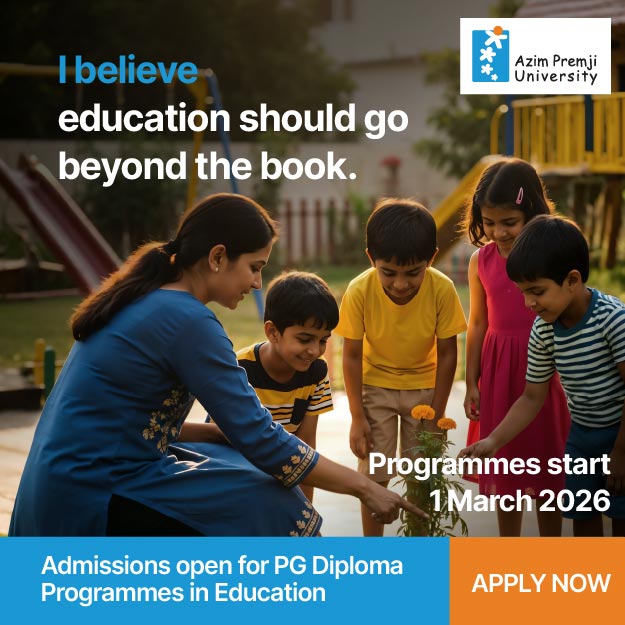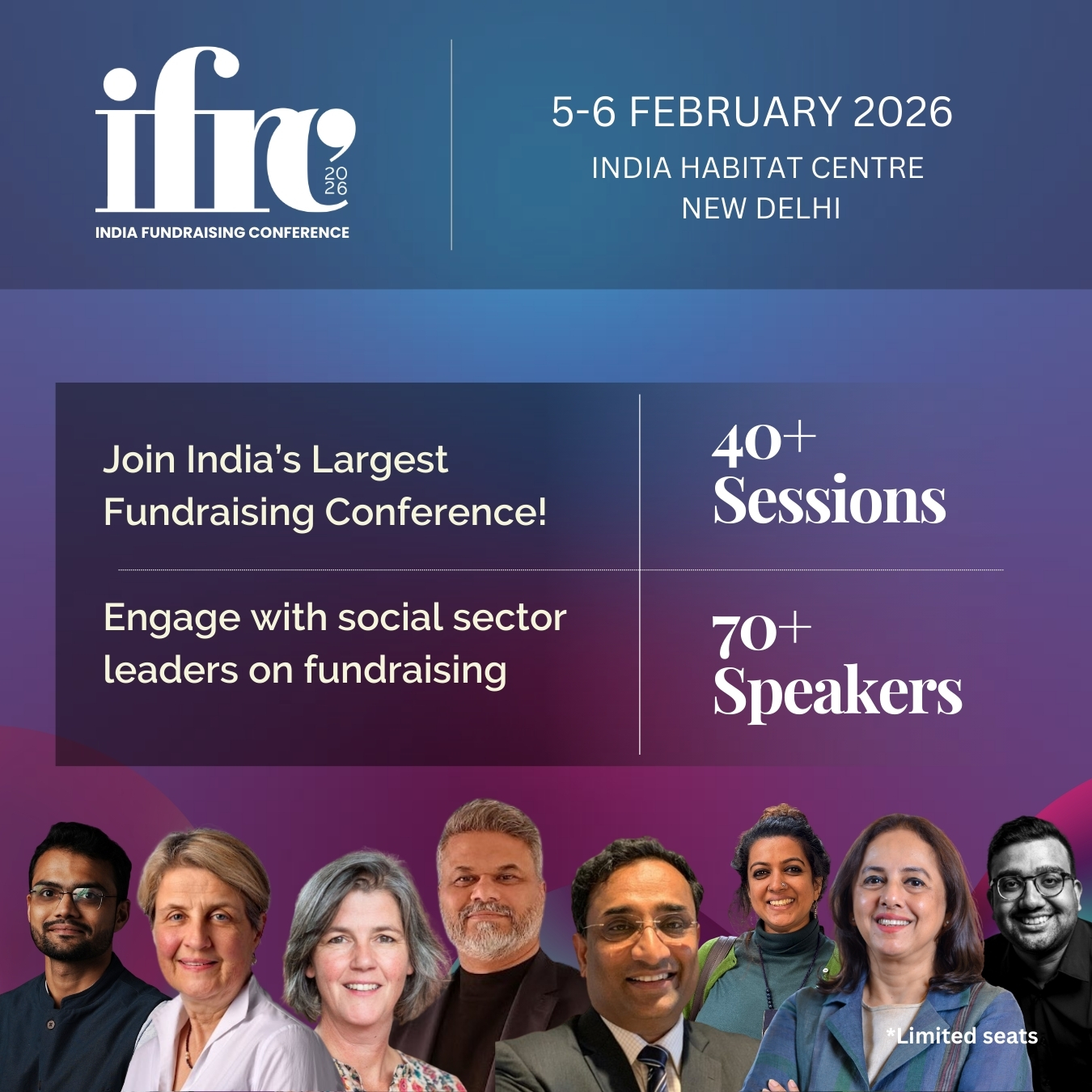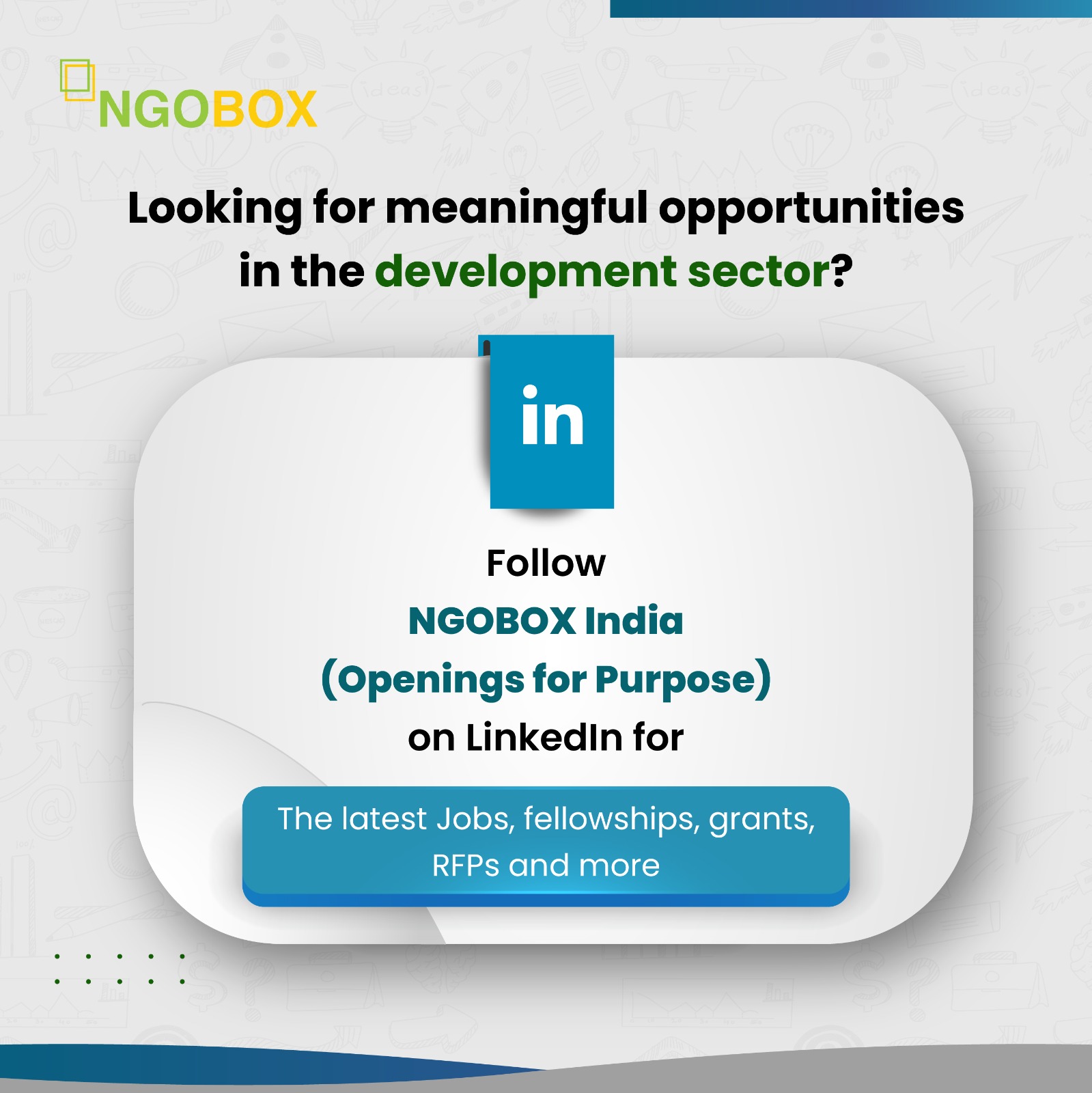Mastering the Craft of Impact: A Skills Guidebook for Development Sector Professionals The Skilfulness of Impact
By- Mayul Manav
September 22, 2025
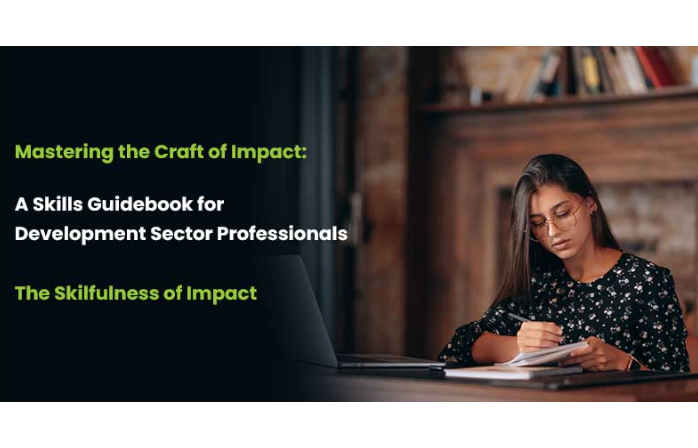
NGOBOX
Working in the development sector is deeply rewarding, and often, equally demanding. Many of us enter this space driven by purpose, only to find that making meaningful impact also requires a wide and evolving set of skills. From navigating policies and managing budgets to designing community workshops and collaborating across teams, the journey can be complex.
That’s where this guide comes in.
“Mastering the Craft of Impact” is a field-tested guide for students, young professionals, and aspiring changemakers who want to grow not just in commitment but in competence. It brings together the hard, technical, and soft skills needed to thrive across diverse roles, whether you're working with grassroots NGOs, CSR teams, philanthropies, or government-linked initiatives. You’ll learn how to design better programmes, manage resources wisely, ask the right questions, and build trust across communities and teams. More than just a toolkit covering budgeting, MEL, or facilitation, this guide helps you build the confidence to lead with clarity, adapt with resilience, and show up with purpose.
Inside, you’ll find practical examples, simple tools, and suggested actions to help you apply what you learn, not just in theory but in everyday practice. Our goal is to support your journey in becoming an impact-ready professional, someone who brings both skill and empathy to the table.
It’s not just about doing good. It’s about doing good, in a better way.
Mastering the Craft of Impact: A Skills Guidebook for Development Sector Professionals The Skilfulness of ImpactWorking in the development sector is not just about understanding that inequality exists, it’s about building the capabilities to respond to it effectively and ethically. Professionals today must work with communities, not just for them.
Whether embedded in grassroots NGOs, CSR teams, research organisations, or engaging with philanthropies and government bodies, a development practitioner must wear many hats: being analytical and empathetic, strategic yet grounded, ambitious while collaborative.
This guide outlines the essential skills hard, technical, and soft, that form the foundation of impactful and ethical practice. It is designed for students, early-career professionals, and young changemakers who are just stepping into this sector and want to align their values with their actions.
1. Hard Skills: Building Blocks for Structured EngagementThese are the foundational, knowledge-based capabilities that support understanding systems, designing interventions, and ensuring smooth programme functioning.
1.1 Policy and Programme Design LiteracyProfessionals need to be able to read and interpret government schemes, public policies, and service delivery models. This skill enables them to break down dense documents, understand implementation mechanisms, and engage more meaningfully with institutions. Example: When designing a youth skilling initiative, familiarity with the National Skill Qualification Framework (NSQF) and schemes like DDU-GKY helps in aligning goals with government priorities, ensuring resource convergence and sustainability.
How to Build It:Budgeting is not just arithmetic, it’s strategic thinking. Professionals must estimate unit costs, forecast needs, align with donor formats, and ensure compliance with specifics like 80G, 12A, or CSR 2% spending norms.
Example: In an education programme, knowing how to budget for
learning materials, transport, teacher salaries, and M&E helps make the case to funders and prepare for unexpected funding changes.
How to Build It:MEL isn’t just about data; it’s about continuous improvement. By setting indicators, collecting and analysing data, and acting on feedback, practitioners ensure their programmes evolve meaningfully.
Example: An NGO running a menstrual health programme can track behaviour change through pre- and post- workshop surveys and correlate the results with attendance data.
2. Technical Skills: Functional Expertise in ActionThese are domain-specific skills that apply knowledge to practice, whether in research, communication, or programme facilitation.
2.1 Research and Analytical ThinkingStrong programmes are rooted in good evidence. Professionals must be able to read reports, design studies, conduct interviews, clean data, and analyse findings.
Example: Before designing a livelihoods programme for women, combining market data with interviews on public transport and ability to travel on their own and decision-making capacity reveals critical design insights.
How to Build It:Impact needs to be communicated clearly, whether through reports, decks, proposals, or social media. The ability to frame narratives for donors, communities, and policymakers is essential.
Example: A well-documented case study blending community stories with impact metrics can help secure future funding and influence replication.
How to Build It:Programmes must be designed with people. Leading participatory
workshops or community consultations builds trust and local ownership. Example: A climate-resilient farming model co-designed with farmers will always have greater traction than a top-down solution.
How to Build It:Soft skills determine how knowledge is applied. They shape relationships, ethics, team culture, and the ability to navigate uncertainty.
3.1 Relationship-Building and Stakeholder ManagementDevelopment work happens in ecosystems. Professionals must learn to navigate power dynamics, align interests, and build trust across levels.
Example: In tribal communities, the support of elders or forest guards can often be the deciding factor in programme success.
How to Build It:Field realities rarely follow plans. A good professional must respond to changing contexts while staying aligned with the core mission.
Example: If telehealth services fail due to network issues, switching to WhatsApp-based community support is a relevant and responsive shift.
How to Build It:Most development programmes involve diverse teams- data analysts, field workers, designers, government partners.
Coordinating across these roles is critical.
Example: A WASH project may involve engineers, IEC experts, and panchayat officials. Seamless coordination makes or breaks success.
It is important a professional spends time to at least learn a little about what the working style and technical expertise of these
various individual people are all about. Understanding what drives them to work better or what each of them mean as “growth” or
“innovation” gives a professional a rare opportunity to co-create a common understanding for all, thereby reducing risks of mis understandings.
How to Build It:This is about recognising your own power, privilege, and impact. It means listening more, acting ethically, and knowing when to step back. Example: When documenting stories of trauma survivors, obtaining informed consent and protecting identities is not optional, it’s fundamental.
How to Build It:The journey of skill-building in the development sector is not linear. It unfolds through fieldwork, failures, quiet wins, and deep listening. The best practitioners are not just competent, they are kind, reflexive, and endlessly curious.
To make lasting impact, professionals must bridge values and execution, ambition and humility. Let this guide be a compass, not a map to help you navigate the evolving, often messy, but always meaningful world of social change.
At the end of this article, you’ll find a checklist curated by our team, featuring key action points to help you kick-start your capacity-building journey. It’s designed to support your growth into a competent development professional, in addition to being a committed one.
Source

Mayul is a development sector professional with a keen interest in improving how people communicate and engage with one another in their daily lives. With a starting point in impact consulting, followed by government advisory, he believes in the power of people coming together for the greater individual and social good. In his free time, he likes to hike, cycle, listen to music, learn about Indian culture through mythological podcasts, and play arcade games with his younger brother.
© Renalysis Consultants Pvt Ltd

.jpg)
.jpg)
